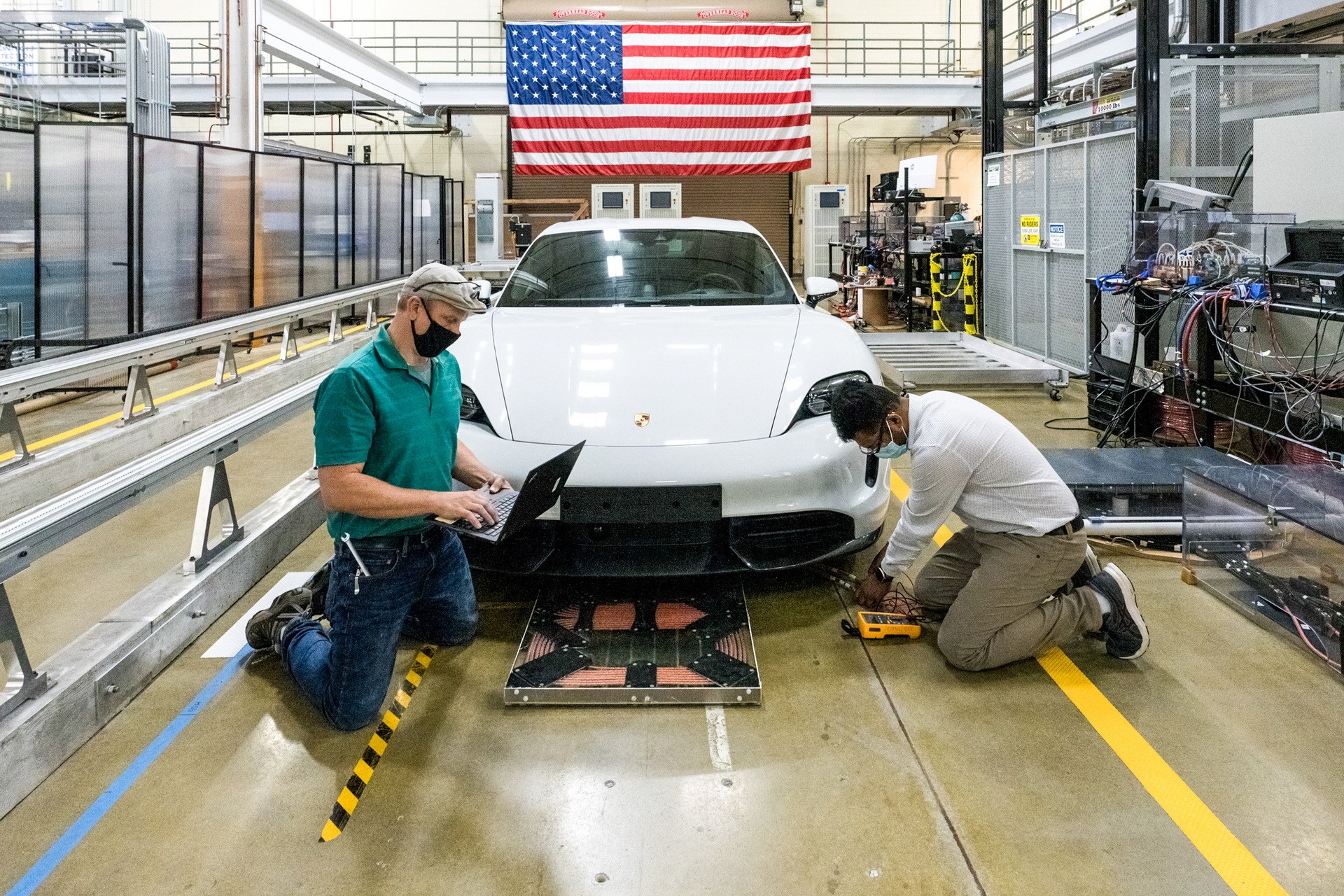Volkswagen Group of America's Innovation Hub Knoxville, the Oak Ridge National Laboratory (ORNL), and the University of Tennessee, Knoxville, are working together to “explore how to integrate breakthroughs in material science and recycling concepts to support electric mobility and sustainable transportation.”
Their first collaborative project is to find a better way to recharge EVs wirelessly.

The aim of the three partners is to create a breakthrough in wireless charging design, with a focus on eletromagnetic waves to eliminate interference. The partners are working on ORNL's high-power wireless EV charging concept with a Porsche Taycan.
A prototype system shows an efficiency of up to 98%. This means the early trials are showing promise, as almost all of the power that leaves the charger is making it to the vehicle.
By joining forces with VW, the team have been able to increase the power significantly, from 6.6 kW to 120 kW. But the ultimate goal is to get to 300 kW, which would allow for the Porsche Taycan to charge to 80% in just 10 minutes.
Xin Sun, Associate Laboratory Director for Energy Science and Technology at ORNL, says “we are excited to work with Volkswagen to demonstrate ORNL’s high-powered, ultra-efficient wireless charging technology.”
“Our unique polyphase electromagnetic coil design and power electronics provide high power transfer levels in a compact system, with the potential to alleviate electric vehicle range anxiety and speed the decarbonization of the US transportation sector.”
Nikolai Ardey, Executive Director Group Research at Volkswagen Group, says “the global Volkswagen Group aims to build a more sustainable vision of future mobility worldwide, and we connect the best researchers in the world to make that a reality.”
“Co-innovating with partners like Oakridge National Laboratory and University of Tennessee helps to multiply the power of Volkswagen’s international innovation team.”








